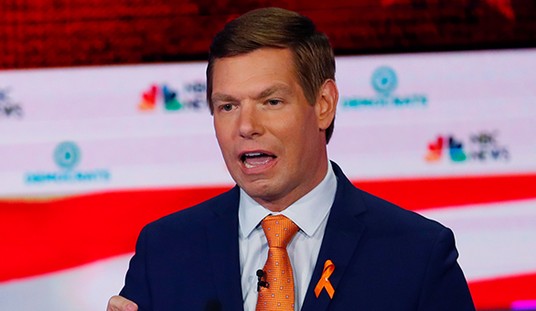I’ll start this review in an unusual way, with a question about a book that hasn’t been written. Why don’t we have a book called The Faith and Values of Barack Obama? After all, he has been president for nearly two years, and ran for president for about two years before that. He was in public life as a senator and a state senator before that. And he wrote a couple of autobiographical books before he’d actually done very much of the stuff that usually fills autobiographies. It isn’t as though no one is curious about the faith and values that animate our president: Nearly everyone is interested in the man’s inner workings, if only to determine what makes him tick to predict what he might do next. Yet there is no such book called The Faith and Values of Barack Obama. Why?
There has been a flotilla of books written about Barack Obama, most notably David Remnick’s The Bridge: The Life and Rise of Barack Obama. But even that book depicts Obama as less a human being than, well, a bridge — a thing that connects one era, the Civil Rights struggle, to the present. And like all other books about him, it relies heavily on Dreams from My Father, which is Obama’s own telling of his tale. The absence of solid information about significant parts of Obama’s worldview has lately spawned a new argument, concerning whether Obama is an “anticolonialist” or not, with Dinesh D’Souza arguing that he is and that that explains many of his actions, while on the other side Christopher Hitchens is content to denounce D’Souza without bothering himself to refute a single thing D’Souza actually wrote. And so it goes with Obamology.
Obama has never granted any author the kind of access and cooperation, yet editorial detachment, that makes a book like The Faith and Values of Sarah Palin possible, while obviously Palin has and we’re better off for it. Obama has simply never been that open with the American people, hiding in plain sight behind soaring rhetoric and grand staging and an army of policy czars, while Palin’s entire life and the lives even of her children have been out in the open for two years running. Obama has never really allowed his inner story to get out without his direct control.
Palin, by contrast, granted authors Stephen Mansfield and David A. Holland tremendous access to a wide range of people who have known her personally from childhood on. There is no hint in the book of her controlling the story, certainly not in the way that autobiographer Barack Obama dictated his own story, nor is there any hint that Palin made any attempt to keep anything out of bounds. The result here is a book that tells us much about Palin, and much about today’s American elites who hate her or at least are so wary of her.
Since this is a book about faith and values, it begins appropriately enough at baby Sarah Heath’s baptism into the Catholic Church. It goes on to weave Sarah’s faith through her upbringing in rugged Alaska, through her own family’s life, and to her political career. The picture we get is almost shockingly normal for anyone who grew up away from the big cities on the two coasts in the lower 48. Sarah’s family had the usual tensions of belief and direction, yet their house was known for being the hangout for all the stray kids in town. The family went to church. They discussed things over dinner. They clung together when times got tough. They read lots of books. They prayed. As for Sarah, growing up in Alaska she was athletic, bookish, driven, and focused, used to going hunting before heading to school, and active in her church and community. Some may bristle at the idea that she felt a “special calling” via her faith to go into public service, but that’s very standard fare in evangelical church and community settings. Her whole story reads well here, and comes off as strikingly not strange at all.
In any other time, The Faith and Values of Sarah Palin might become a movie of the week, but mainly because the central figure is so attractive, so sunny, and so indomitable, not because she’s the freak that the cultural elites make her out to be. She can handle a gun and a board meeting. Her frontier ways and her recognizably authentic Christian values are mainstream and main street values. She has taken on big challenges, and her beliefs and personal strength have helped her succeed in most of them, even against serious opposition. Most Americans at least try to live out values similar to those of Sarah Palin without even really thinking about it.
These days, the only way the Sarah Palin story gets turned into that movie of the week is if she kills someone, starts a war, or turns out to be a fraud. The first would only happen in defense of herself or her family (don’t cross the Mama Grizzly), the second could only happen if her story gains a whole new chapter yet unwritten, and the third won’t happen at all. Sarah Palin, contra Andrew Sullivan’s and many others in the media’s insane ramblings about her, isn’t a fraud. That’s why she’s so scary to a certain subset of the elites: She’s an evangelical who just believes and acts according to those beliefs. That doesn’t make her intellectually incurious or a radical religionist or anything of the sort; in fact, according to Faith, Sarah was always the bookworm of the Heath family.
Her beliefs make her what we once called normal, at least in flyover country. There are moms like her, and moms who strive to be like her without ever thinking of it that way and who might even scoff at the idea, on every street and in every neighborhood in America. They run our offices and schools, they run the local diners and band booster drives, and they get the family from Point A to Point B with military precision. Or they try their best to do all that, while trying to work out what they really believe about everything at the same time. Palin managed to do it, even to the point of running a state while going on oceanic fishing excursions with her husband while her political opponents buried her in expensive, frivolous accusations designed to drive her from office. She sent a son off to war. She’s dealt with a pregnant daughter, a worthless almost son-in-law, and a child with special needs. She’s us, pretty much, except that she also happens to have been nominated for the vice presidency and now commands a national following while also attracting a ferocious national opposition that includes most of the mainstream press. Her faith and her values have carried her through all the very high highs and the very low lows that life has thrown at her. The rest of us could only hope that we would handle the extremes of being Sarah Palin with half her grace.
The Faith and Values of Sarah Palin: What She Believes and What It Means for America shows that Mrs. Palin is very much what-you-see-is-what-you-get: an authentically and uniquely American woman whose very ordinary beliefs have propelled her to do remarkable things. And that mainstream faith and those main street values may propel her to do yet even more remarkable things before her story is finished.









Join the conversation as a VIP Member